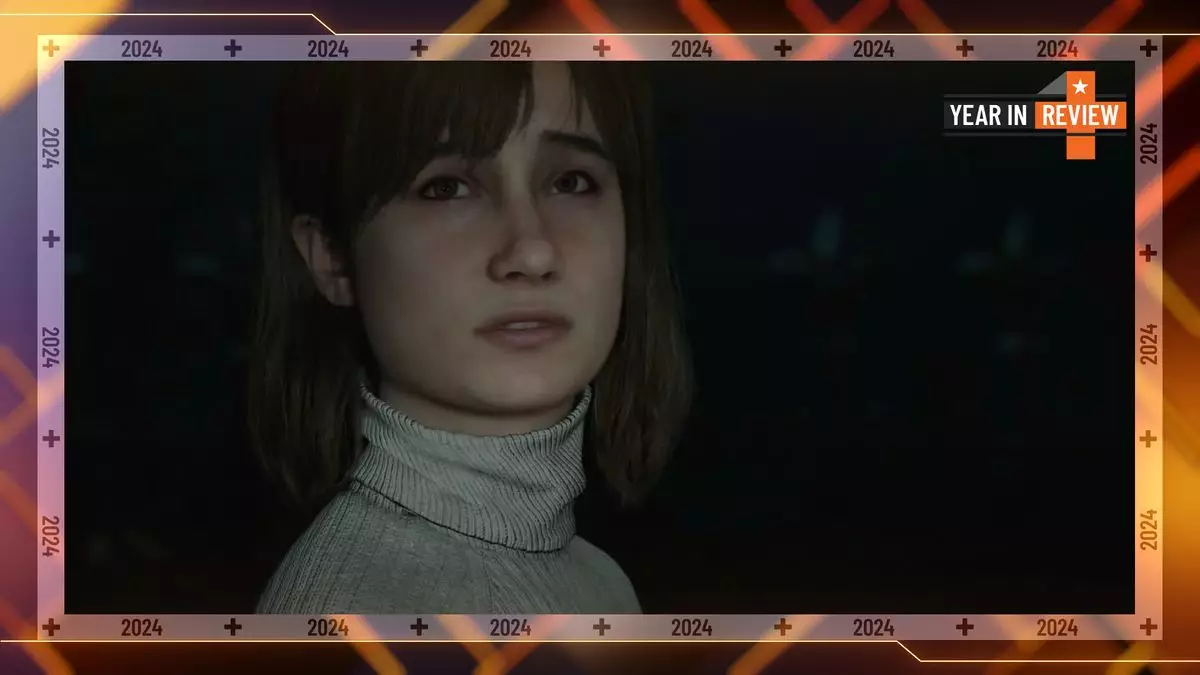The transformation of Angela Orosco in the 2024 remake of Silent Hill 2 opens up a profound dialogue about the representation of women in gaming, especially those associated with trauma and victimhood. As we delve into the psyche of this haunted character, we must confront not only the narrative painted by Konami in its original 2001 release but also how Bloober Team’s reimagining of Angela elevates her story beyond mere caricature to one of dignity and depth, striking a necessary chord in our contemporary societal landscape.
Angela’s original portrayal in Silent Hill 2 serves as a mix of trauma and tragedy, presenting her as a victim with an aura of bleakness that resonates with players. Her discomfort manifests vividly through her interactions and the chilling environments she navigates. From her initial appearance, where she lies vulnerable before a mirror holding a knife, the audience senses her deep-rooted despair— a heavy weight of past abuses that follows her through the fog-laden streets of Silent Hill. Her lines echo haunting truths about the inevitability of running from pain, highlighting the cruel dichotomy of seeking safety versus confronting one’s demons.
Yet, Angela was often seen through a simplified lens: a girl trapped in horror, her struggles sometimes overshadowed by a lack of nuance in her characterization. Critics have pointed out that her appearance—once marked by severity and scars—contributed to a two-dimensional view of her suffering. Complaints regarding Bloober’s reimagined aesthetic suggest this younger, softer Angela could not possibly embody the pain of the original character. They disregarded the profound changes in the narrative landscape that allow for more complex portrayals of trauma.
In Bloober’s rendition, Angela’s character is imbued with a richness that enhances her identity beyond victimhood; she becomes a multifaceted individual whose pain is palpable yet dignified. As she interacts with protagonist James Sunderland, her nuanced reactions illustrate a person grappling with anguish but also seeking agency within her trauma. The dynamic performances, particularly Gianna Kiehl’s voice acting, shed light on Angela’s internal struggle, portraying an anger that stems from betrayal and a yearning for healing.
This level of nuance offers players an opportunity to empathize rather than dismiss her experiences. For every haunting encounter, Angela’s journey reexamines the nuances of trauma; it asks us to confront not only the depth of her suffering but also the societal tendencies to objectify victims rather than to understand them. This dialogue around empathy is vital, especially in a gaming environment that has faced scrutiny regarding its treatment of female characters over the years.
One of the most telling sequences in Angela’s story is her confrontation with Abstract Daddy, a literal and metaphorical representation of her torment. The original game’s portrayal falls flat under the weight of its cartoonish villain; it trivializes the raw horror of abuse. Conversely, the remake places great emphasis on the terror encapsulated in this encounter, emphasizing that trauma should not be reduced to mere plot devices. Instead, it intricately intertwines her past encounters with this grotesque beast, illustrating how deeply rooted the effects of violence can be within a survivor’s psyche.
The visceral representation of violence against Angela and her subsequent desperation make players confront uncomfortable realities about human experiences. Unlike the original, where her trauma was too easily overshadowed by the game’s horror elements, Bloober’s redesign encourages a more profound recognition of Angela not only as a victim but as someone grappling with the remnants of her past in a world indifferent to her suffering.
For many players, encountering Angela’s journey resonates on a deeply personal level. As she ascends her own personal “flaming staircase,” players witness not only a character in turmoil but also the embodiment of struggles familiar to many. Her cathartic release serves as an acknowledgment that trauma manifests uniquely for each individual, regardless of gender or background. Even as Angela battles the demons surrounding her—both literal and figurative—the remake opens a dialogue about the generational trauma that often influences personal identity.
This nuanced approach serves to defy the simplistic narratives that have traditionally characterized female figures in gaming. Angela Orosco becomes not merely a character defined by her trauma but a relatable individual enveloped in complex experiences. The weight of her journey leads to an understanding that while she faces insurmountable challenges, there remains hope for recovery and recognition in an industry that is finally beginning to shift towards more balanced portrayals of women in games. By fostering compassion rather than judgment, Bloober’s Silent Hill 2 remake aligns itself with a larger movement demanding empathy and genuine understanding when it comes to the representation of pain and victimhood in gaming narratives.

